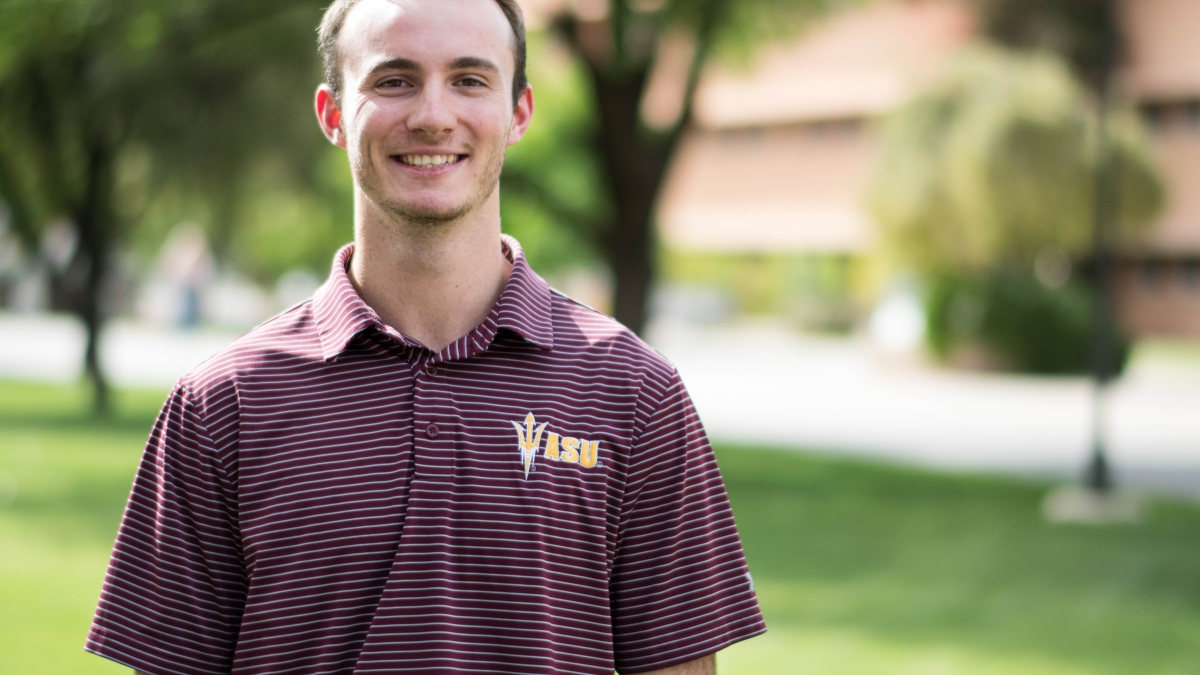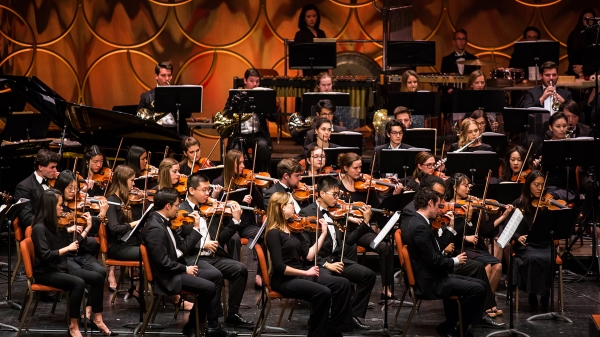History student named Dean's Medalist

Shawn Courson will continue his commitment to serving others after graduation and move to Seattle as a member of Teach for America.
Editor’s note: This is part of a series of profiles for spring 2018 commencement.
Shawn Courson stands out among his fellow history majors due to his commitment to others and his education. Because of his accomplishments and engagement to ASU, he was chosen as the Dean’s Medalist for the School of Historical, Philosophical and Religious Studies.
“He has worked tirelessly at ASU in the service of others,” said history Professor Calvin Schermerhorn, who nominated Courson for the medal. “I have taught many students with his potential but never one with that talent and determination focused on giving so much to others and to seek out those who might need his gifts and dedication the most."
Courson impressed his faculty and peers as he balanced teaching full-time at Tempe High School, earning top marks in his courses and working on his honors thesis that details the struggles of African-American political leaders in Texas after the Civil War.
He will continue his commitment to serving others after graduation and move to Seattle as a member of Teach for America.
Courson answered a few questions about his time at ASU, tips for current students and future plans.
Question: What was your “aha” moment, when you realized you wanted to study the field you majored in?
Answer: I came into ASU as a math major, but I never felt a real passion for my studies during my freshman year. I began studying history and discovered a passion for learning about marginalized groups and cultures throughout U.S. history. I knew I’d be making a far more significant impact teaching the subject where my heart was truly at.
Q: What’s something you learned while at ASU — in the classroom or otherwise — that surprised you, that changed your perspective?
A: I learned how important it is to be an active participant in your environment. You will meet so many incredible people at ASU—the faculty, students and more. Open yourself up to others around you and form meaningful connections. You never know who might end up helping you land your next job or join you on your next adventure!
Q: Why did you choose ASU?
A: Coming from a small town in New York, I had been looking at several out-of-state universities from all different parts of the country. I was immediately drawn to ASU because of its beautiful campus, sports history and its unparalleled value for out-of-state students. I was also impressed by the incredible facilities and top-tier professors teaching at ASU.
Q: What’s the best piece of advice you’d give to those still in school?
A: College is so much more than lectures and assignments. Make the most of your ASU experience by getting involved — in classes and in extracurricular activities. The most rewarding and life-changing experiences I’ve had at ASU have stemmed from developing close relations with my favorite professors and from staying involved with ASU club sports for four years.
Q: What was your favorite spot on campus, whether for studying, meeting friends or just thinking about life?
A: My favorite study spot on campus is in Hayden Library, on the second floor, tucked away behind the bookshelves at a row of individual desks positioned next to windows facing out towards campus. I read dozens of books and spent several months working on my thesis at this very spot.
Q: What are your plans after graduation?
A: After graduation, I will be moving to Seattle to combat educational inequity as a member of Teach for America, teaching high school history. I will also be pursuing a master’s degree in education at the University of Washington.
Q: If someone gave you $40 million to solve one problem on our planet, what would you tackle?
A: I wouldn’t be able to solve the problem, but if I had $40 million, I would invest it into struggling school districts with high percentages of students from low-income backgrounds. An investment into education practically pays for itself. Such an investment would update facilities, help secure necessary materials and technological tools, retain quality teachers and provide students with more out-of-school educational trips. All these additions would help retain students and better engage them with a more modernized learning environment. Investments into education pay great dividends as the students you invest in are put in a far better position to become high-achieving and successful outside of academics.
More Arts, humanities and education

ASU Symphony Orchestra welcomes visionary conductor Jonathan Taylor Rush
Guest conductor Jonathan Taylor Rush will join Arizona State University’s Jason Caslor, director of bands, to lead the ASU…

Chemistry classes are key to art student's success
Amanda Barnette has a passion for art preservation. That means that, for the past four years, the Arizona State University…

ASU+GSV Summit tackles big questions about AI, technology, education
Editor's note: We'll be updating this story daily throughout the summit. The annual ASU+GSV Summit kicked off in San Diego on…